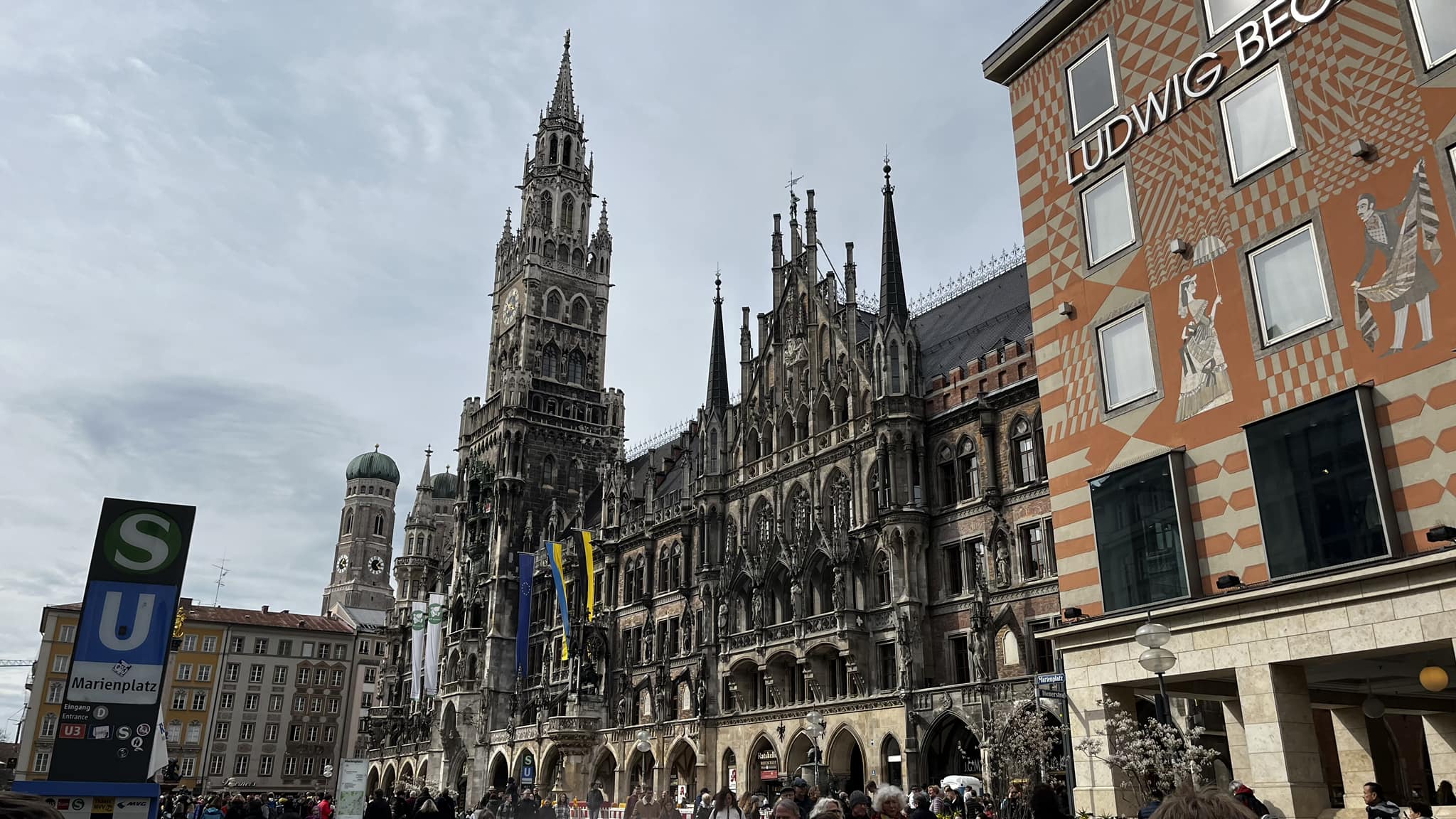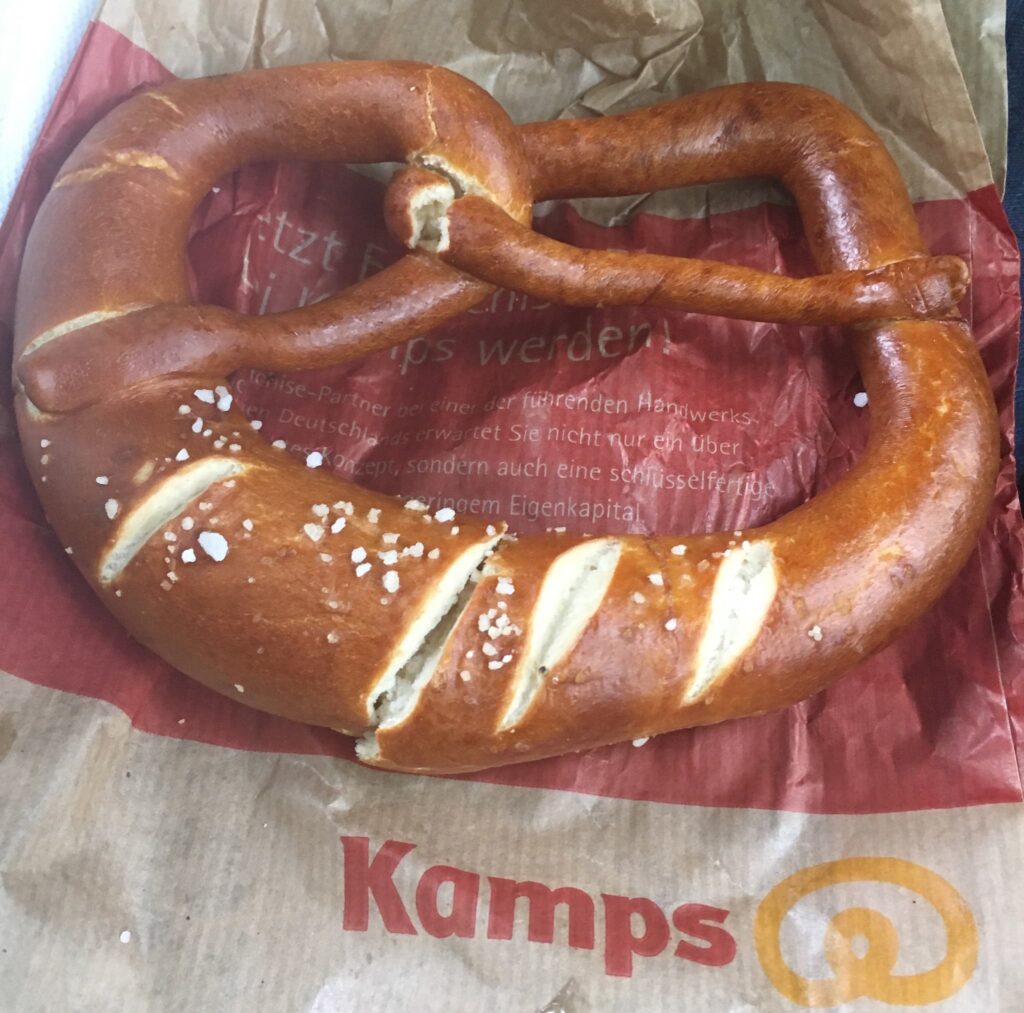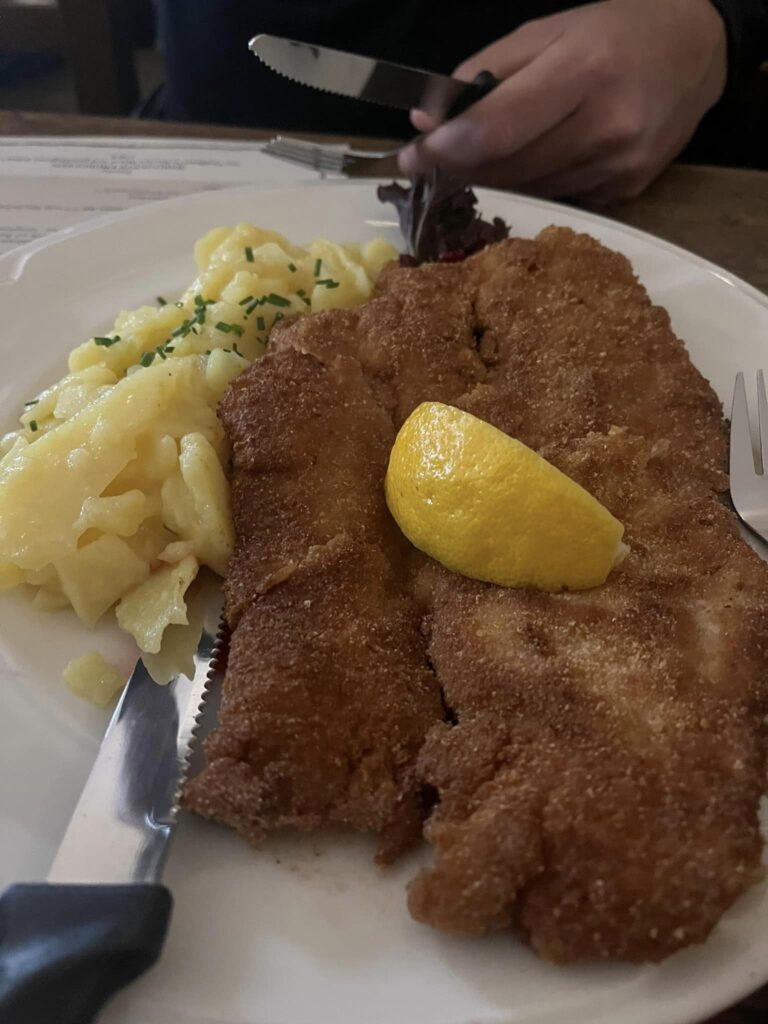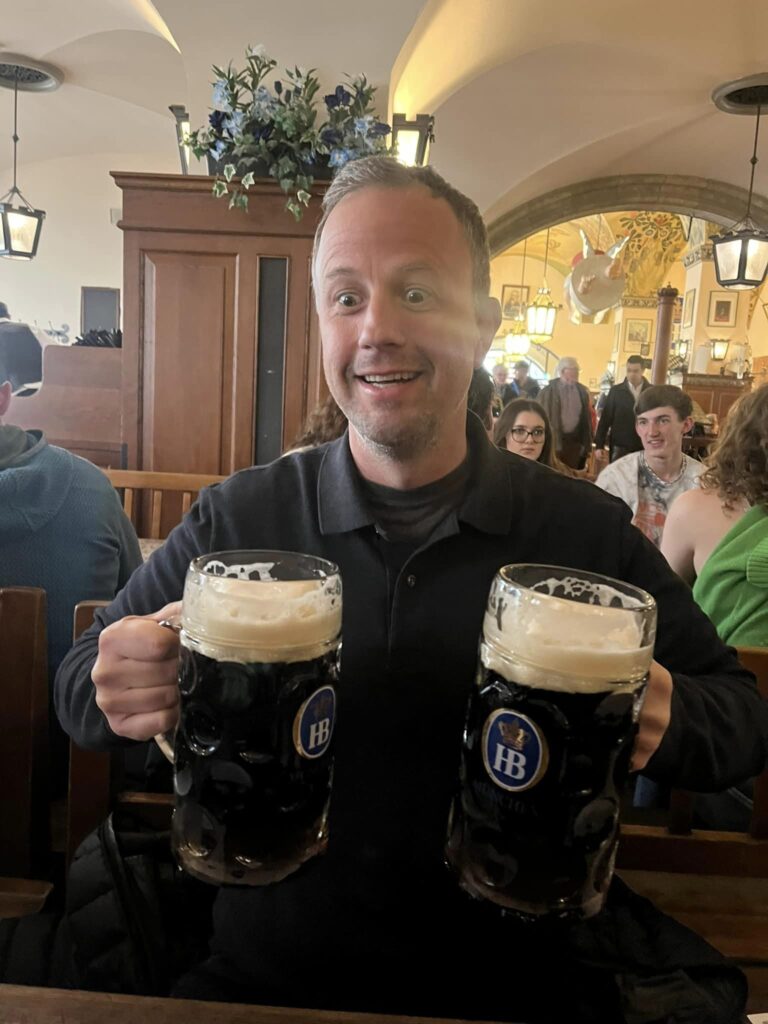Munich, the capital of Bavaria, blends historical charm with modern energy. Whether you love history, art, or Bavarian culture, Munich has something for everyone.
Founded in 1158 by Henry the Lion, Munich grew from a medieval town into Bavaria’s cultural and political hub. Over centuries, it flourished during the Renaissance and Baroque periods. The city played key roles in the Protestant Reformation and Counter-Reformation. Its royal heritage shines in landmarks like the Munich Residenz and Nymphenburg Palace. Despite wars and World War II devastation, Munich rebuilt quickly, combining history with modern innovation.
Today, it offers vibrant neighborhoods, museums, and world-class architecture. Munich is famous for beer gardens, festivals like Oktoberfest, and a lively cultural scene that celebrates both tradition and contemporary life.
The Same
When we visited Munich, Germany, The DINKs (Double Income, No Kids) and The Family, took very different approaches, yet some experiences overlapped. We both explored Munich’s rich history, wandered through its vibrant streets, and, of course, sampled the city’s famous local cuisine.
While the DINKs leaned on guided tours to hit top landmarks efficiently, The Family preferred a slower pace, strolling through neighborhoods and discovering hidden gems. Together, our experiences captured both the classic must-see sights and the authentic flavors of Bavarian culture.
Local Cuisine
- Weisswurst: A traditional Bavarian sausage made from finely minced veal and pork, flavored with parsley, lemon, mace, onions, and cardamom. It’s typically served with sweet mustard and a pretzel.
- Pretzels (Brezen): Munich is famous for its large, soft pretzels, which are often enjoyed as a snack or with beer. They’re crispy on the outside, soft on the inside, and sprinkled with coarse salt.
- Schweinshaxe: Roasted pork knuckle with crispy skin and tender meat, seasoned with salt, pepper, and caraway seeds. It’s served with sauerkraut and potato dumplings (Knödel).
- Obatzda: A savory Bavarian cheese spread made from Camembert or Brie cheese mixed with butter, onions, paprika, and sometimes beer. It’s served with pretzels or crusty bread.
- Kartoffelsalat: Bavarian potato salad made with boiled potatoes, onions, vinegar, and oil, often flavored with mustard and garnished with parsley.
- Schnitzel: While not originally Bavarian, schnitzel (breaded and fried meat cutlet, usually pork or veal) is popular in Munich and served with potatoes or salad.
- Kaiserschmarrn: A fluffy shredded pancake made from flour, eggs, sugar, and milk, often served with stewed plums or applesauce and sprinkled with powdered sugar.
- Bavarian Beer: Munich is famous for its beer culture, particularly during Oktoberfest. Try local brews like Helles (pale lager), Dunkel (dark lager), and Weißbier (wheat beer), often enjoyed in beer gardens or traditional beer halls.
- Apfelstrudel: A classic Bavarian dessert consisting of thin layers of pastry filled with spiced apples, raisins, and cinnamon, served warm with vanilla sauce or whipped cream.
Munich Highlights
- Marienplatz: Dating back to 1158, Marienplatz is Munich’s historic central square. Surrounded by iconic buildings, it offers a lively mix of history, culture, and modern activity.
- New Town Hall (Neues Rathaus): Located at the northern end of Marienplatz, the New Town Hall is a majestic Gothic Revival building that dominates the square’s skyline. Built in 1874, it houses the city government, including the city council, mayoral offices, and administrative departments. Don’t miss the famous Glockenspiel, a mechanical clock that performs daily musical and figurative displays.
- Viktualienmarkt: The Viktualienmarkt is a vibrant daily food market located just a few steps from Marienplatz. It features over 140 stalls selling fresh produce, gourmet foods, and traditional Bavarian delicacies. It’s an excellent place to sample local specialties and enjoy a casual meal.
- New Town Hall (Neues Rathaus): This Gothic Revival landmark dominates Marienplatz with its intricate façade. Built in 1874, it houses city government and features the famous Glockenspiel show.
- Viktualienmarkt: Just steps from Marienplatz, Viktualienmarkt is Munich’s famous open-air food market. Sample fresh produce, gourmet foods, and traditional Bavarian delicacies.
- Nymphenburg Palace: Explore the baroque Nymphenburg Palace, the former summer residence of Bavarian monarchs. Visit ornate rooms, gardens, and museums like the Marstallmuseum and Porzellanmuseum.
- English Garden (Englischer Garten): One of the world’s largest urban parks, the English Garden offers walking and biking paths, surfing on the Eisbach wave, and traditional beer gardens.
- Munich Residenz: Discover the former royal palace, featuring historic rooms, museums, and highlights like the Antiquarium, Treasury, and Cuvilliés Theatre.
- Asam Church (Asamkirche): This small baroque church dazzles with intricate frescoes, stucco work, and gold leaf, built by the Asam brothers as their private chapel.
- Frauenkirche: Munich’s iconic cathedral features twin onion domes. Climb to the top for panoramic views of the city skyline and surrounding landmarks.
- Beer Gardens: Unwind in Munich’s legendary beer gardens. Both The Family and the DINKs visited different ones, enjoying steins of beer and Bavarian specialties like pretzels, sausage, and schnitzel.
The DINKs
We explored several of Munich’s Iconic Beer Halls: Hofbräuhaus, Schneider Bräuhaus, and Weisses Bräuhaus. Munich is synonymous with beer culture, and its historic beer halls are a testament to this tradition. Among the most renowned are Hofbräuhaus, Schneider Bräuhaus, and Weisses Bräuhaus. Each of these establishments offers a unique slice of Bavarian history, culture, and, of course, exceptional beer.
Hofbräuhaus
Hofbräuhaus, arguably the most famous beer hall in the world, dates back to 1589 when it was founded by Duke Wilhelm V to supply the Wittelsbach court with their preferred brews. Located in the heart of Munich, Hofbräuhaus has become an iconic symbol of Bavarian beer culture, attracting visitors from all over the globe. Walking into Hofbräuhaus is like stepping back in time. The grand beer hall, with its high vaulted ceilings, traditional Bavarian decor, and long communal tables, creates an atmosphere of conviviality and celebration. The historic rooms, including the famous Festsaal (festival hall), echo with the sounds of live oompah bands and the clinking of massive beer steins. Hofbräuhaus is renowned for its Hofbräu Original, a classic Munich Helles lager, and Hofbräu Dunkel, a dark, malty beer. The beer is served in traditional one-liter Maßkrugs, providing an authentic Bavarian drinking experience. The food menu complements the beer perfectly, featuring Bavarian specialties such as Schweinshaxe (pork knuckle), Weisswurst (white sausage), pretzels, and sauerkraut. The hearty dishes are perfect for soaking up the rich beers and enhancing the overall experience.
Schneider Bräuhaus
Founded in 1872 by Georg Schneider I, Schneider Bräuhaus is famous for its Weissbier (wheat beer). The establishment prides itself on preserving the traditional methods of brewing Weissbier, making it a must-visit for wheat beer enthusiasts. Schneider Bräuhaus offers a cozy and welcoming atmosphere. The interior is adorned with wooden furnishings and traditional Bavarian decorations, creating a warm and inviting environment. The beer hall often features live music, adding to the festive and relaxed ambiance. Schneider Bräuhaus is best known for its Schneider Weisse Original, a classic wheat beer with a rich, full-bodied flavor. Other notable brews include Aventinus, a strong wheat doppelbock, and Mein Alkoholfreies, a flavorful non-alcoholic option.
Weisses Bräuhaus
Weisses Bräuhaus, located in the Altstadt (Old Town) of Munich, has a history dating back to 1540, making it one of the oldest beer halls in the city. It became a focal point for beer lovers when it was acquired by the Schneider family in 1872, who continued to brew their famous wheat beers. The ambiance at Weisses Bräuhaus is traditional and rustic, with wooden interiors and a charming old-world feel. The beer hall exudes a sense of history and tradition, providing an authentic Bavarian experience for visitors. Weisses Bräuhaus specializes in Schneider Weisse, much like its counterpart, Schneider Bräuhaus. The beer selection includes various types of Weissbier, each with its distinct flavor profile. Aventinus, the strong wheat doppelbock, is particularly popular among patrons.
The Family
Münicher Radler Brewery
The family chose to visit the Münicher Radler Brewery. One of the highlights of visiting the Münicher Radler Brewery is the diverse selection of Radlers on offer. From the classic lemon Radler to innovative variations like grapefruit, orange, and even berry-infused blends, there is something for everyone. Each Radler is crafted with care, ensuring a perfect balance of beer and fruit flavors. The brewery uses high-quality, locally sourced ingredients, which shine through in the crisp, clean taste of each beverage. The brewery’s menu features a range of hearty dishes that pair perfectly with their refreshing Radlers.
Bernsteinladen – Munich Amber House
If you find yourself wandering the charming streets of Munich, a visit to Bernsteinladen, also known as Munich Amber House, is a must. Nestled in this historic city, Bernsteinladen offers a unique blend of exquisite amber jewelry and decor, making it a treasure trove for both tourists and locals alike. Amber, often referred to as “the gold of the North,” has been cherished for centuries, prized for its beauty and mystical properties. Munich Amber House carries on this rich tradition, offering a wide array of amber pieces that capture the timeless elegance and natural beauty of this gemstone. Each piece tells a story, from ancient forests where the resin was first formed to the hands of skilled artisans who shape it into stunning jewelry and decorative items.
Summary
In comparing two distinct experiences in Munich, Germany, it’s clear that both the DINKs and the family immersed themselves in the city’s rich culture and history, enjoying iconic landmarks like Marienplatz and Nymphenburg Palace. While both groups indulged in local cuisine and explored renowned sites such as the English Garden and Munich Residenz, their itineraries diverged in delightful ways. The DINKs delved deeper into Munich’s beer culture, visiting multiple beer gardens, while the family focused on unique experiences like the Bernsteinladen – Munich Amber House. Each perspective offered a glimpse into Munich’s diverse offerings, from its vibrant beer scene to hidden gems showcasing local craftsmanship. Whether savoring a pint in a bustling beer garden or discovering artisanal treasures, both experiences highlighted Munich’s charm and left lasting memories of a city that blends tradition with modern flair.





















Leave a Reply